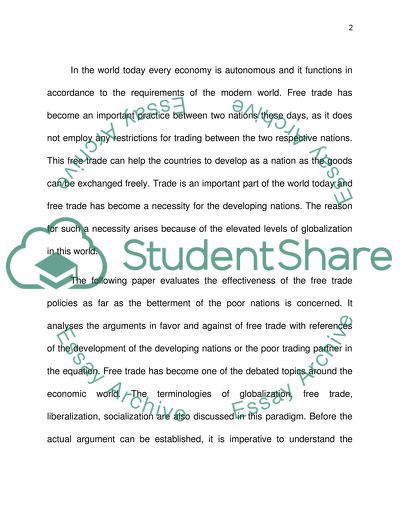Cite this document
(The Effectiveness of the Free Trade Policies Case Study, n.d.)
The Effectiveness of the Free Trade Policies Case Study. Retrieved from https://studentshare.org/macro-microeconomics/1591443-does-free-trade-advance-or-retard-development-in-poor-countries
The Effectiveness of the Free Trade Policies Case Study. Retrieved from https://studentshare.org/macro-microeconomics/1591443-does-free-trade-advance-or-retard-development-in-poor-countries
(The Effectiveness of the Free Trade Policies Case Study)
The Effectiveness of the Free Trade Policies Case Study. https://studentshare.org/macro-microeconomics/1591443-does-free-trade-advance-or-retard-development-in-poor-countries.
The Effectiveness of the Free Trade Policies Case Study. https://studentshare.org/macro-microeconomics/1591443-does-free-trade-advance-or-retard-development-in-poor-countries.
“The Effectiveness of the Free Trade Policies Case Study”. https://studentshare.org/macro-microeconomics/1591443-does-free-trade-advance-or-retard-development-in-poor-countries.


